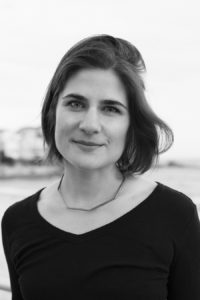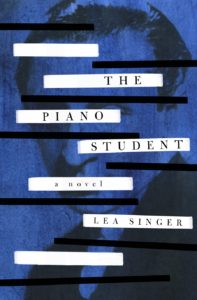Next Wednesday, East End Books Ptown is holding a virtual book event on the The Piano Student, with author Lea Singer and translator Elisabeth Lauffer. The novel, newly translated from German, is about pianist Vladimir Horowitz’s forbidden love affair with his younger male student Nico Kaufmann.

Horowitz is widely considered one of the greatest pianists of the 20th century. He married Wanda Toscanini, daughter of Arturo, the famed conductor. He suffered from depression, and withdrew from public performances at several points during his life.
Singer attended a famous concert that Horowitz played in Berlin in 1986, after one of his comebacks. She recalls the tears in Horowitz’s eyes as he played Robert Schumann’s “Träumerei,” or “Reverie,” from “Kinderszenen,” or “Scenes From Childhood.” This piece is the focal point of The Piano Student.
The novel begins as two euthanasia administrants knock on the door of Reto Donati, a lawyer in Zurich, Switzerland, to find no one home. Donati had sought assisted suicide for his “untreatable depression,” but had second thoughts after listening to a record of Horowitz playing “Träumerei.”
Donati wanders into a Zurich piano bar and asks to hear the piece. Through pure coincidence, that is how he meets Kaufmann, the pianist there, who tells him his life story. Though this framing device feels a bit contrived, it does lend the book a cinematic quality, like an old German movie.

Singer chose this narrative structure, she says, because “Donati is not a musician, he is not even a music devotee. But he stands for the enchanting power of music to awaken memories.” In effect, he’s a stand-in for the reader.
“Lea Singer” is a pseudonym, used for works of fiction. As Eva Gesine Baur, her legal name, she has also penned biographies of Chopin and Mozart. Her careful research and attention to detail is manifest in The Piano Student, which is based primarily on Kaufmann’s letters to Horowitz. Singer discovered them at Zurich’s Central Library.
“The decision to write fiction or nonfiction is made quickly,” says Singer. “It depends not on me, but only on the stuff, the material, the story. You might strain your brain trying to write a nonfiction book if you are too deeply involved, emotionally, and, in the end, there will be a lack of needed distance, of indispensable sobriety.” On the other hand, fiction, she adds, provides the opportunity to show characters’ inner monologues and psychological turmoil.
Because the novel contains almost no quotation marks, and switches frequently between present and past, the reader is sometimes unsure of who is speaking and when. This, however, is a purposeful choice.

“It’s an effective, immersive narrative tool that reminds us of the fluid boundaries of memory,” says translator Lauffer. “I would say, though, that these temporal jumps are a bit easier to follow in German, because of how chronology is expressed grammatically.” Conveying this quality in English was challenging.
Though cinematically atmospheric, the novel is filled with literary tropes. The last chapter, for example, begins exactly the same as the first chapter, with identical sentence structure, but this time, the two euthanasia administrants are replaced by Kaufmann and Donati.
There are also many beautiful passages about music. “If you’ve ever practiced a piece exhaustively, tortured yourself with it or been tortured by it, you will recognize it for the rest of your life,” writes Singer.
Writing in the voice of Kaufmann, Singer offers an ironic nod to the futility of what she does: “Describing music is a fool’s errand. Music begins where language fails. How can one expect to transform it into words after the fact? It’s better to hear it in your head.”

Though Singer and Lauffer do manage to accomplish that nearly impossible mission, reading the novel would be incomplete without listening to Horowitz’s recordings. To this end, there is a playlist on Spotify of all the pieces mentioned in The Piano Student, with “Träumerei” taking center stage.
Blame It on Schumann
The event: Author Lea Singer and translator Elisabeth Lauffer virtually discuss The Piano Student, their new historical novel
The time: Wednesday, Oct. 7, at 6 p.m.
The place: Hosted via Zoom by East End Books Ptown; get link at eastendbooksptown.com
The cost: Free



